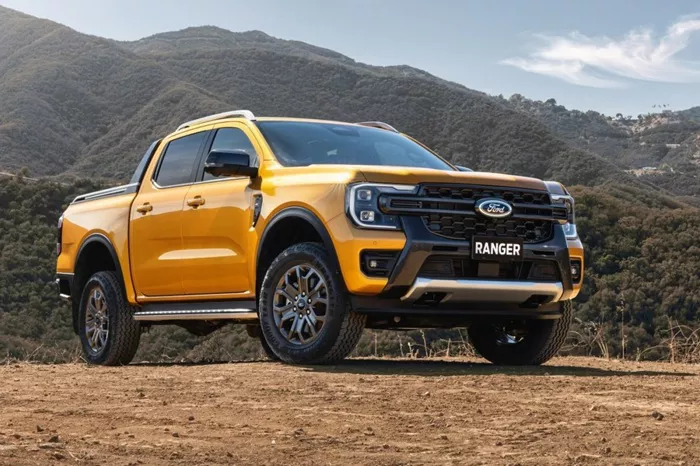As the global shift towards electric vehicles (EVs) gains momentum, countries where the automotive industry plays a crucial role in their economies must speed up the transition to EV production to protect their industries’ future. South Africa is one such country, where vehicle manufacturing is a key part of the economy. The country hosts several major automakers, including Mercedes-Benz, Ford, BMW, Toyota, Isuzu, and Volkswagen.
Six years ago, I warned that South Africa could miss the significant opportunities presented by the EV transition if it failed to act quickly. The South African auto industry remains focused on internal combustion engine (ICE) vehicles, while the world moves rapidly toward electric alternatives.
According to reports from the Automotive Business Council of South Africa:
The automotive industry contributes 5.3% to the country’s GDP (3.2% from manufacturing and 2.1% from retail).
In 2023, vehicle and automotive component exports reached R270.8 billion, making up 14.7% of South Africa’s total exports.
The industry accounts for 21.9% of South Africa’s manufacturing output.
Vehicles and components are exported to 148 countries.
The sector directly employs around 116,000 people across various levels of the manufacturing chain.
The broader economic impact of the industry includes approximately 498,000 jobs in the formal sector.
The latest vehicle export numbers reveal a troubling trend. In 2024, vehicle exports from South Africa fell by 22.8%, dropping to 308,830 units from 399,594 units in 2023. This decline can be attributed to several factors, including a slowdown in demand in the European Union (South Africa’s key export market), stricter emission regulations, and increasing competition from cheaper Chinese electric vehicles. The timing of new model releases in South Africa also contributed to the drop. This situation signals the urgent need for South Africa to accelerate its EV production plans.
However, there has been progress in the plug-in hybrid electric vehicle (PHEV) segment. Automakers such as Mercedes-Benz and BMW are already manufacturing PHEVs in South Africa, and these vehicles contributed to the 308,830 units exported in 2024. PHEV production increased by 121% in 2024, rising from 5,168 units in 2023 to 11,406 units. This represents about 4% of total vehicle exports from South Africa.
The real boost to PHEV production is expected in 2025. Ford Motor Company has started full-scale production of its first-ever Ford Ranger PHEV at the Silverton Manufacturing Plant in South Africa. This marks a significant milestone for the plant, as the Ranger PHEV is an integral part of Ford’s global sustainability strategy. The Silverton Plant’s environmentally friendly upgrades further support Ford’s long-term commitment to sustainability.
Ockert Berry, Vice President of Operations at Ford South Africa, emphasized the importance of the Ranger PHEV production, stating, “The addition of the high-tech new Ranger PHEV to our production portfolio is an important milestone in Ford’s manufacturing history in South Africa.”
Ford has designated the Silverton Plant as the global production hub for the Ranger PHEV, signaling its major upgrades and flexibility. Key improvements include:
An annual capacity of 200,000 vehicles, including approximately 200 Ranger PHEVs per day across various specifications and both left- and right-hand drive models.
Europe will be the primary export market for the Ranger PHEV starting in 2025. The vehicle will also be exported to Australia and New Zealand, marking the first Ranger exports from Silverton to these regions.
A new PHEV Battery Assembly Plant, with advanced features such as a hybrid conveyor system for improved ergonomics and quality. The facility is designed to produce 62,000 battery packs annually.
Innovative testing for the battery packs, using vacuum testing with differential noise cancellation to enhance safety and production quality.
The upgrades at the Silverton Plant also include new sub-assembly lines for PHEV chassis components, improved stamping dies for the PHEV charging port, and dedicated areas for high-voltage work to ensure safety standards are met.
Ford’s Ranger PHEV, set to launch in Europe, Australia, and New Zealand in 2025, combines a 2.3L EcoBoost engine with a 75kW electric motor and an 11.8kWh battery. It retains the Ranger’s 3,500kg towing capacity and introduces Pro Power Onboard.
Sustainability efforts at the Silverton Plant are extensive. New water recycling projects in the Paint Shop are saving approximately 14,400m3 of water annually, and the plant is exploring further ways to recycle waste and reduce landfill use. The facility also boasts a pioneering solar carpark, with over 30,000 solar panels generating 13.4MW of electricity, enough to power the entire plant during the day.
Ford South Africa is also expanding its solar system and exploring alternative energy sources to achieve carbon-free electricity for all its manufacturing operations.
With the new Ranger PHEV, Ford aims to produce 200 units per day at Silverton. Assuming production continues at this pace for 330 days per year, Ford will produce 66,000 Ranger PHEVs annually. This production surge, combined with potential increases from BMW and Mercedes-Benz, could see the share of PHEVs in South Africa’s vehicle exports rise from 4% to 32%.
If this trend continues, South Africa’s automotive sector could significantly strengthen, especially with the potential to expand into fully electric vehicles (BEVs) in the future.

